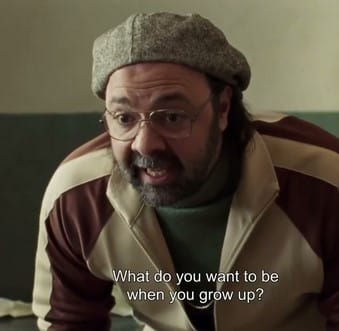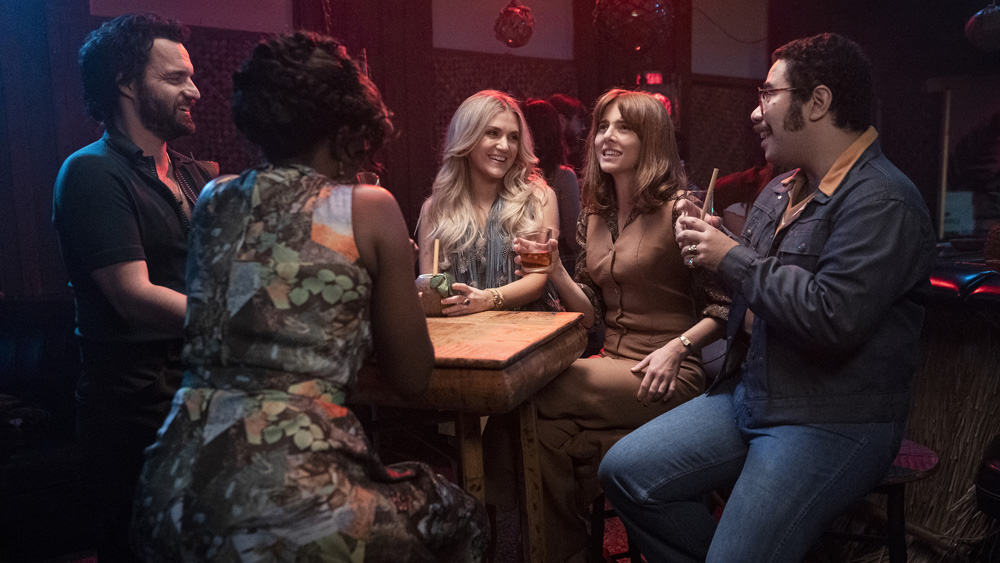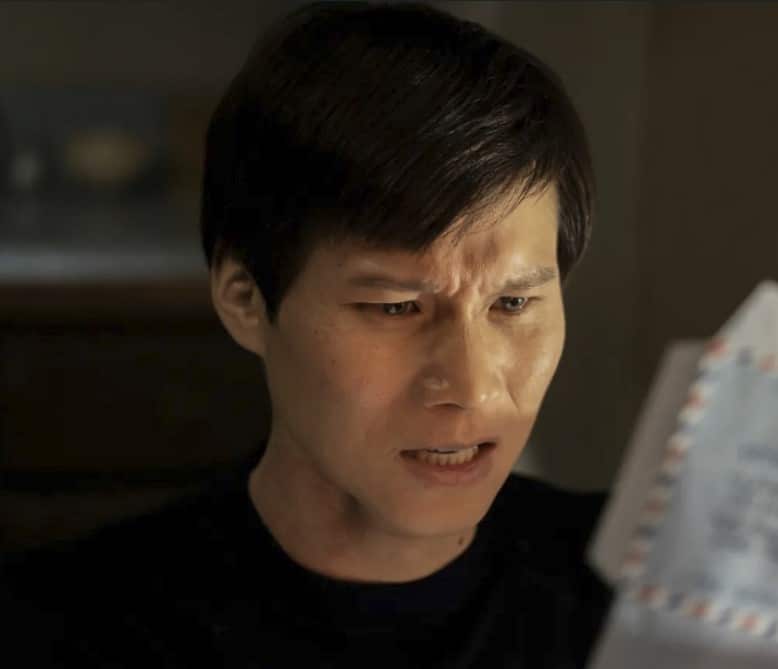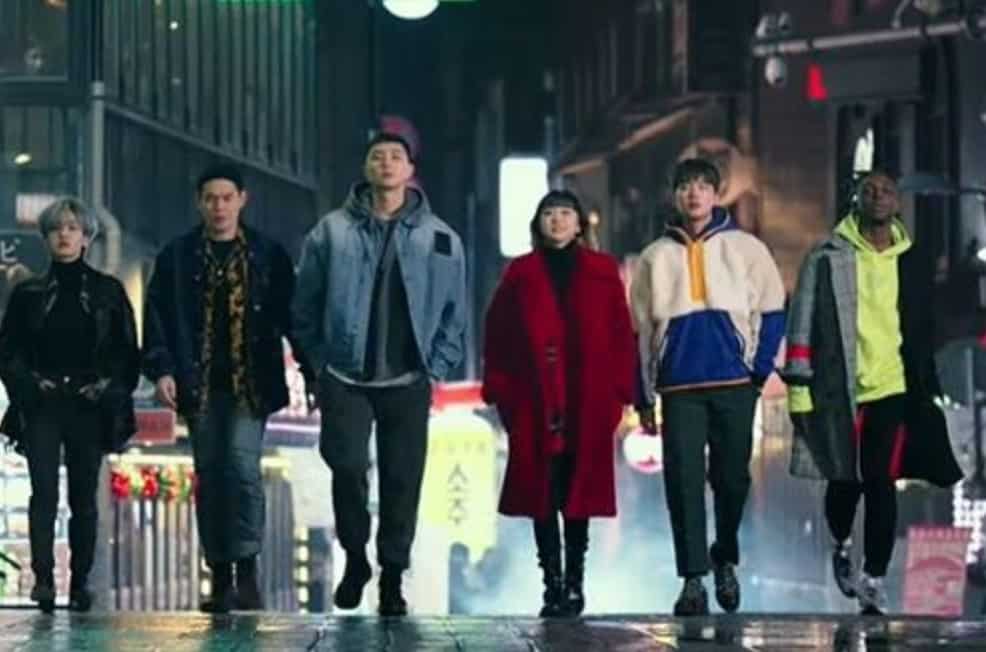Watercooler Pick
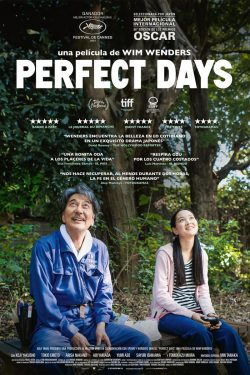
Perfect Days
- Movie
- Where to Find It: Mubi
- Rating: PG-13
- Release Date: March 5th, 2024 (US)
- Runtime: 2 hours 4 minutes
Recommended by:
Share on social media
Find More Watercooler Picks
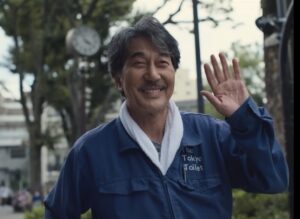
Hirayama seems to have life figured out. He takes pride in his job as a caretaker for Tokyo’s public toilets while indulging in simple pleasures: listening to his favorite cassette tapes, taking photos with a point-and-shoot camera, reading second-hand books. He thrives in this meditative, properly structured, analog lifestyle, so when his daily routine suddenly gets disrupted by unexpected encounters, he is forced to adapt and reconnect with his past in this 2024 Oscar contender for Best International Feature Film.
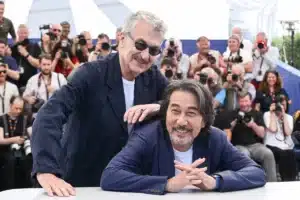
Germany’s three-time Oscar nominated auteur Wim Wenders (Wings of Desire) returns to Japan after a decades-long absence. Bringing life to Hirayama is Koji Yakusho (Babel), who earned a Cannes Best Actor award for his restrained yet profound performance – the first Japanese actor to receive the prestigious accolade in nearly 20 years.
It’s the epitome of East meets West – a movie that illuminates Tokyo through the eyes of an outsider. Yet considering it’s the first film in Japan’s rich cinematic history to be nominated for an Oscar without a Japanese director at the helm, Perfect Days avoids a whitewashed depiction of the country, featuring an all-Japanese cast who deliver all their lines in their native language.

Some Western influences are inescapable though, evidenced by the movie’s ‘dad rock’ inspired soundtrack (The Kinks, Velvet Underground, Patti Smith, Otis Redding, etc.). In fact, the film’s title is derived from Lou Reed’s song Perfect Day, which sets the mood for the story.
But Wenders is not entirely an outsider. He knows a thing or two about Japanese culture. Almost four decades ago, he spent time in Tokyo to film a documentary entitled Tokyo-ga, which was his way of paying homage to the memory and legacy of beloved Japanese director Yasujirō Ozu.
Wenders also shot scenes of his 1991 sci-fi classic Until the End of the World in Tokyo. So in a way, Perfect Days is the return of Japan’s adopted son after being away for more than three decades. And Wenders makes the most of it with this understated masterpiece.

Shining a spotlight on the plight of sanitation workers is Koji Yakusho, who delivers a dignified and heartfelt portrayal of the dedicated, taciturn toilet cleaner Hirayama with as few lines as possible.
It’s important to note that Komorebi, a Japanese word with no direct English equivalent that loosely translates to sunlight leaking through trees, was the movie’s original title. It’s a theme that is heavily alluded to in the film and used judiciously as a plot device. Though Hirayama’s backstory is never revealed, Wenders disclosed in an interview with Tricycle: The Buddhist Review that the character lived a wealthy but troubled life before finding peace and fulfillment in his unglamorous occupation. And during one of his darkest moments, the miracle of komorebi appeared to him – seemingly out of nowhere, in a hotel room through a window as he was contemplating suicide. Its profound beauty stopped him from doing the unthinkable.
This backstory is deliberately left out in the movie, and it’s for the better. A conventional director would’ve revealed this important detail and devoted screen time to its exposition. But Perfect Days is not a predictable film. It embraces the beauty and power of minimalism, ultimately eliciting a more truthful and profound emotional response.

Where so many films today thrive in chaos, Perfect Days shines in its quietest moments. Watching it feels like a meditation, one that teaches us to live in the present and embrace the subtler moments in life.
While its by no means perfect, the film’s universal message and zen-like immersion make it an ideal film for self-reflection and introspection – in essence, cinema’s highest aspiration.
A nuanced film that finds beauty in the ordinary and dignity in manual labor, Perfect Days serves as a lesson as well as a blueprint on how to live a fulfilling and meaningful life. It underscores the importance of finding solace in solitude and happiness from the simple act of living.
Anyone who is struggling to find meaning or peace in a job that is far removed from their dreams. Or friends and family who might need to connect to the lost art of an analog life.

In the interview with journalist Tim Brinkhof for the Tricycle, Wenders is asked if he knows more about Hirayama’s past life than what he shows on screen. “Indeed, there was a backstory,” Wenders reveals without hesitation. “I had to write it down, at least for myself, to imagine the character of Hirayama when we wrote the screenplay. And later, I figured, Koji Yakusho would eventually ask me the same question you just did, as an actor. So I wrote five pages to know for myself who Hirayama was. I wrote it as a verbal account by Hirayama himself, looking back at his life, told to me in the first person.”
Wenders then shares an excerpt from Hirayama’s supposed (verbal) autobiography: “I grew up in Kita-Kamakura as a protected child of a wealthy family. I studied economy and law, and became a businessman. I never got along with my father, and my mother died when I was young. I had one sister, and she was my father’s treasure, while he was never there for me, and did not care much for me. He never gave me anything from himself, emotionally, and so I felt to him like towards a stranger…”
- Moods: enlighten me, give me hope, transport me
- Interests: acclaimed and award winning, conversation worthy, fresh perspectives, international, original
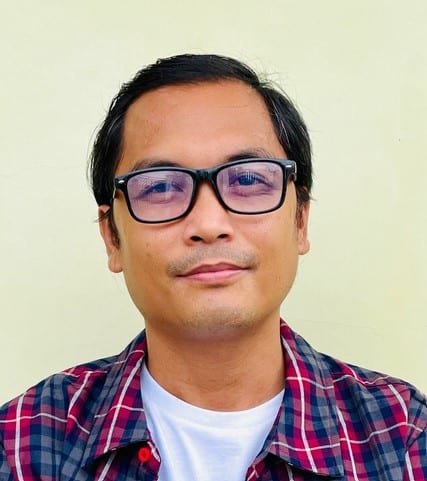
Churchill P. Guevarra



